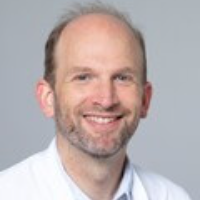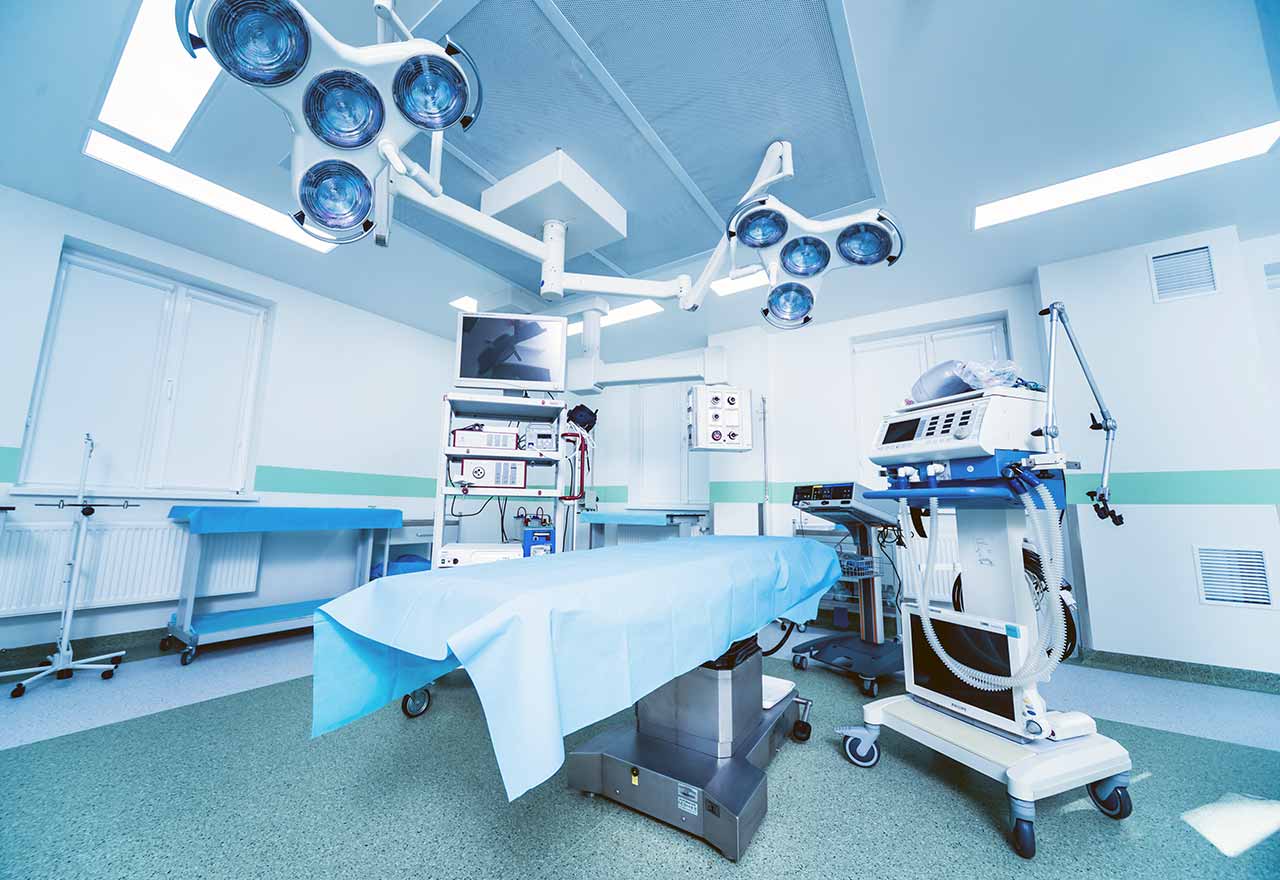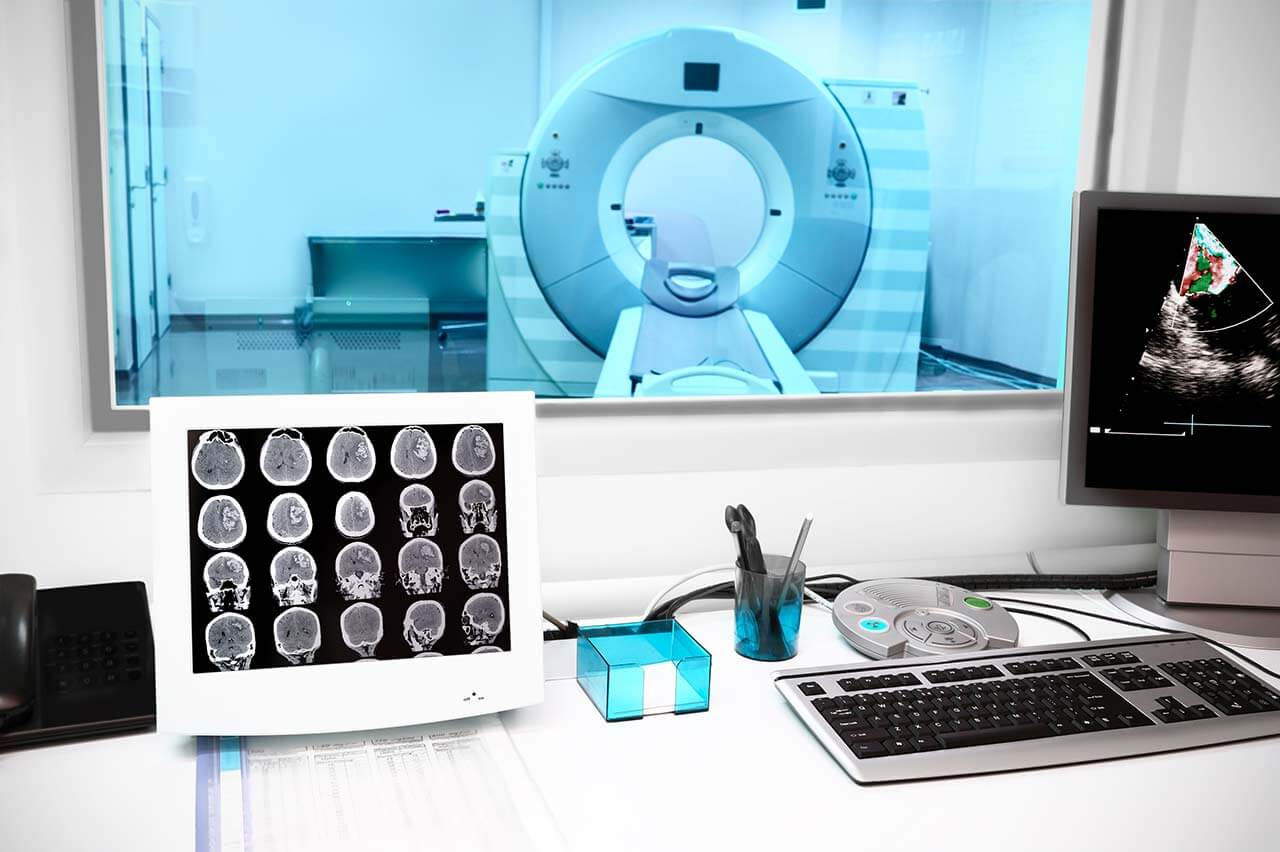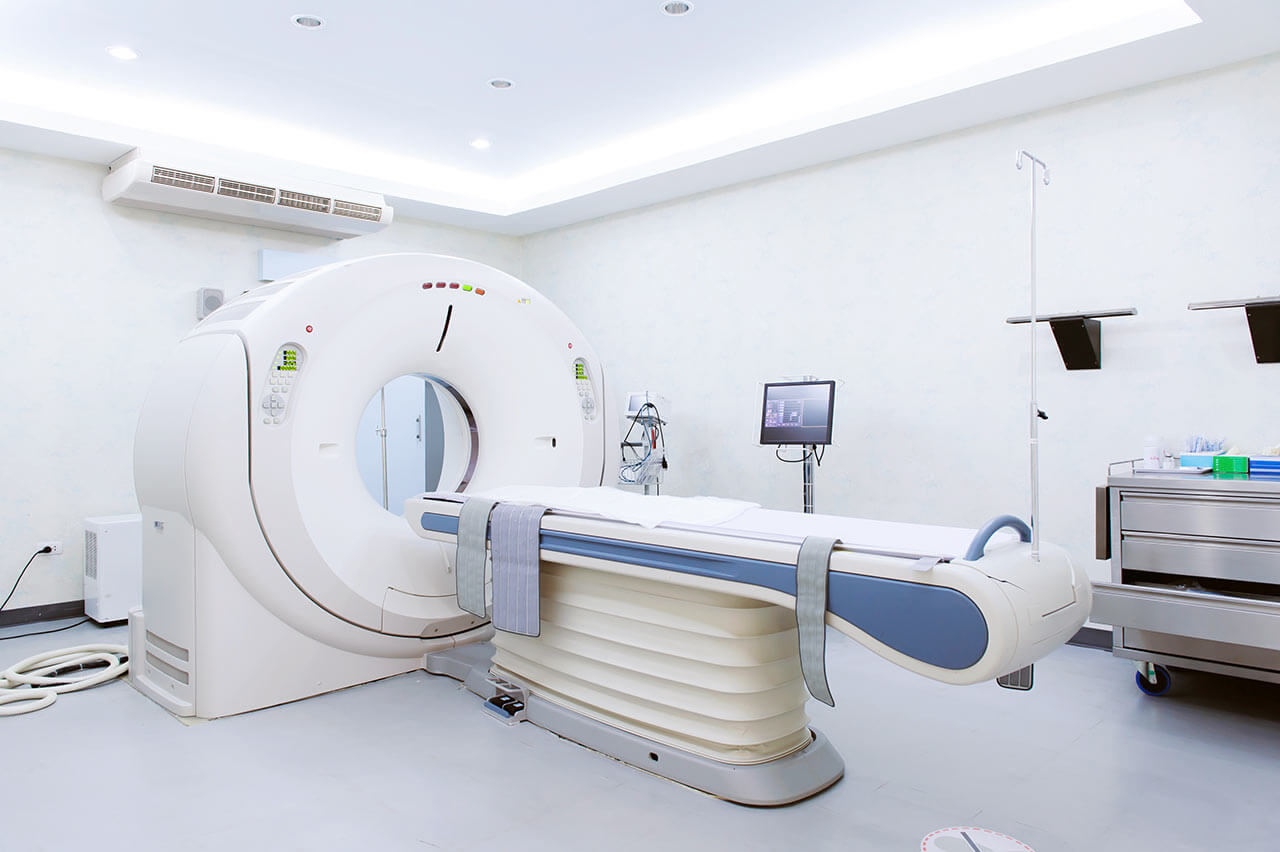
The program includes:
- Initial presentation in the clinic
- clinical history taking
- review of medical records
- physical examination
- general neurological examination
- neuropsychological tests:
- electroneuromyography (ENMG)
- laboratory tests:
- complete blood count
- inflammatory indicators (CRP, ESR)
- indicators of blood coagulation
- CT scan of spinal cord (on indication 650 €)
- MRI scan of spinal cord (on indication 1200 €)
- nursing services
- consultation of all leading experts
- development of individual treatment plan
- written statement
Required documents
- Medical records
- MRI/CT scan (if available)
Service
You may also book:
 BookingHealth Price from:
BookingHealth Price from:
About the department
The Department of Adult and Pediatric Neurosurgery, Spinal Surgery at the University Hospital Hamburg-Eppendorf provides a full range of services in its areas of expertise. The department's doctors operate on patients with brain and spinal cord tumors, central nervous system malformations, epilepsy, traumatic brain injuries, degenerative disc diseases, spinal stenosis, spinal cord injuries, and peripheral nervous system pathologies. Neurosurgeons specialize in treating patients of all ages, including children and adolescents. Pediatricians, pediatric oncologists, radiologists, and neuroradiologists are involved in the treatment of young patients. Surgical procedures to treat pathologies of the nervous system are performed by highly qualified surgeons with extensive clinical experience. The physicians use state-of-the-art equipment in their work: intraoperative imaging systems, neuronavigation devices, and fluorescence imaging. Advanced technologies are key to effective and safe treatment, as damage to vital anatomical structures of the brain or spinal cord may cause severe neurological deficits. More than 2,000 operations are performed annually in the department's state-of-the-art operating rooms, the majority of which are for brain tumors. The department treats more than 11,000 patients each year. For many years, it has been one of the leading neurosurgical centers in Germany that treats patients from many European countries. The department is headed by PD Dr. med. Lasse Dührsen.
The specialists in the department are deservedly proud of their outstanding achievements in the surgical treatment of brain tumors in adults and children. It should be noted that neurosurgeons have unique experience in performing operations for complex skull base tumors. The basis of treatment for brain tumors is almost always their surgical resection. These operations are considered complex and require high skill of the neurosurgical team and the use of advanced technologies. When performing brain tumor resection surgery, the medical facility uses intraoperative imaging and neuromonitoring systems, as well as intraoperative fluorescent labeling of the tumor with 5-aminolevulinic acid. Approximately 1,000 resections of glioblastomas, meningiomas, astrocytomas, and skull base tumors are performed in the department's operating rooms each year. The clinic achieves exceptional results in neurosurgical treatment thanks to a strong team of specialists and the use of innovative methods and advanced high-tech equipment. Most patients with brain malignancies are also prescribed radiation therapy, with the number of sessions required and their intensity determined by the radiotherapists, taking into account the clinical situation. If clinically indicated, chemotherapy, targeted therapy, and immunotherapy may also be used.
Of particular interest to the department's medical team is surgery for epilepsy in adults and children. In most cases, epilepsy responds well to drug therapy, but when it is ineffective, doctors consider surgical treatment. The patient undergoes a comprehensive preoperative diagnosis, including electroencephalography, video-EEG monitoring, computed tomography, magnetic resonance imaging, positron emission tomography, laboratory tests, and other studies. The department's neurosurgeons specialize in amygdalohippocampectomy (surgery to remove parts of the temporal lobe of the brain), resection of epileptogenic brain tumors, vagus nerve stimulation, and deep brain stimulation. The decision to perform surgery for epilepsy is made at an interdisciplinary meeting involving neurologists, neurosurgeons, and neuroradiologists.
The department also offers high-quality services in spinal surgery. Since May 2018, the department has the status of a Level I Spinal Surgery Center with certification in accordance with the standards of the German Spine Society (DWG), of which only 14 clinics in the whole of Germany have been awarded. The department performs more than 500 spine surgeries each year, including the most complex ones. Neurosurgeons most often operate on patients with herniated discs, spinal stenosis, spondylolisthesis, spinal tumors and injuries. Spinal procedures are performed using minimally invasive, microsurgical, and endoscopic techniques. Thanks to the use of minimally invasive surgical techniques, patients recover extremely quickly, and pain is virtually eliminated in the postoperative period.
Some of the key areas of clinical practice in the department are as follows:
- Neurosurgery
- Surgery for brain tumors
- Surgery for glioblastomas
- Surgery for meningiomas
- Surgery for astrocytomas
- Surgery for brain metastases
- Surgery for brain aneurysms
- Surgery for brain arteriovenous malformations
- Surgery for pituitary adenomas
- Surgery for epilepsy
- Surgery for hydrocephalus
- Deep brain stimulation for movement disorders with a special focus on Parkinson's disease, tremors, and dystonias
- Surgery for peripheral neuropathies
- Surgery for neurosurgical diseases in children and adolescents
- Surgery for brain tumors
- Surgery for epilepsy
- Surgery for hydrocephalus
- Surgery for spina bifida
- Surgery for Arnold-Chiari malformation
- Surgery for brain arteriovenous malformations
- Surgery for craniosynostosis
- Surgery for brain tumors
- Spinal surgery
- Surgery for spinal disc herniations
- Surgery for spinal stenosis
- Surgery for spondylolisthesis
- Surgery for spinal fractures, including osteoporotic ones
- Surgery for spinal tumors
- Surgery for congenital spinal malformations
- Other surgical options
Photo of the doctor: (c) Universitätsklinikum Hamburg-Eppendorf (UKE)
About hospital
According to the Focus magazine, the University Hospital Hamburg-Eppendorf is one of the top ten hospitals in Germany!
Since its foundation in 1889, the hospital has taken a leading position in the European medical arena, which it still holds today. A highly competent medical team of more than 15,300 employees takes care of the health of patients. Approximately 2,900 of them are physicians and researchers, and more than 3,400 work as nurses and therapists. The hospital has 1,738 beds for inpatient treatment, and many diagnostic and therapeutic services are provided on an outpatient basis. A solid foundation for successful clinical practice in the medical complex is formed by a combination of research achievements with state-of-the-art equipment and the highest professionalism of doctors. In addition, the hospital has a modern and extremely comfortable infrastructure. The most important value for every employee of the University Hospital Hamburg-Eppendorf is the health and well-being of every patient.
The medical facility was the first university hospital in Europe to implement an electronic system for storing patient medical reports. As a result, all diagnostic and treatment protocols are stored electronically. In 2011, the hospital was certified as the first fully digital hospital in Europe.
The hospital represents all areas of modern medicine. The doctors of the healthcare facility have a wealth of theoretical knowledge and vast clinical experience, which allows them to easily cope with the treatment of both common and extremely rare, complex clinical cases. About 550,000 patients are treated here each year, over 450,000 of whom receive outpatient medical care.
An important part of the work of the University Hospital Hamburg-Eppendorf is research activities aimed at developing innovative diagnostic and treatment methods. The main areas of research of the hospital include neurobiology, oncology, cardiovascular research, and research on infectious and inflammatory diseases. Special attention is also given to research in molecular imaging and skeletal biology.
The hospital is distinguished by its first-class level of medical care, which is confirmed by numerous quality certificates of European and international standards: DIN EN IS0 9001 certificate, certificates of the German Cancer Society (DKG) in the treatment of breast cancer, colon cancer, gynecological cancer, prostate cancer, and other oncological diseases, certificate of the German Cardiac Society (DGK) in the treatment of acute coronary syndrome, certificate of the German Spine Society (DWG), and others.
Photo: (с) depositphotos
Accommodation in hospital
Patients rooms
The patients of the University Hospital Hamburg-Eppendorf stay in comfortable single and double bright rooms with a modern design. Each patient room has an ensuite bathroom with a shower and a toilet. The standard patient room furnishings include an automatically adjustable bed with an orthopedic mattress, a bedside table, a wardrobe, a table and chairs for receiving visitors, a telephone, a radio, and a TV. Wi-Fi access is available in patient rooms and throughout the hospital.
If desired, patients can stay in single enhanced-comfort rooms. These rooms are more spacious and are equipped with upholstered furniture, a safe, and a mini-fridge.
Meals and Menus
The hospital offers three meals a day: breakfast, lunch, and dinner. Breakfast and dinner are served in the form of buffets, and for lunch you can choose from several set menus – in total, more than 20 dishes are served for lunch, including vegetarian ones.
If, for some reason, you cannot eat all of the foods, you will be offered an individual menu. Please inform the medical staff about your dietary preferences prior to the treatment.
Further details
Standard rooms include:
![]() Toilet
Toilet
![]() Shower
Shower
![]() Wi-Fi
Wi-Fi
![]() TV
TV
Religion
Religious services are available upon request.
Accompanying person
During the inpatient program, an accompanying person may stay with you in a patient room or hotel of your choice.
Hospital accommodation
During the outpatient program, you may stay in a hotel at the hospital.
Hotel
During the outpatient program, you may stay in a hotel of your choice. Managers will help you choose the most suitable options.
The hospital offers a full range of laboratory tests (general, hormonal, tests for infections, antibodies, tumor markers, etc.), genetic tests, various modifications of ultrasound scans, CT scans, MRI and PET / CT, angiography, myelography, biopsy and other examinations. Treatment with medications, endoscopic and robotic operations, stereotaxic interventions is carried out here, modern types of radiation therapy are also used. The hospital offers patients all the necessary therapeutic techniques.
- Coiling and clipping of aneurysms of different localizations
- Transjugular intrahepatic portosystemic shunting in patients with portal hypertension
- Minimally invasive surgeries (da Vinci)
- Removal and reconstruction of mammary glands
- Hyperthermic intraperitoneal chemotherapy (HIPEC)
These are arteriovenous malformations and angiomas, vascular aneurysms, pathologies of the mammary glands, pelvic organ prolapse, urinary incontinence, malignant tumors of various localizations (area of special attention is treatment of intestinal cancer), pathologies of liver and pancreas, cataracts and rare ophthalmic pathologies (aphakia, aniridia ), infertility and other diseases.
- Interventional neuroradiology
- Mammology
- Oncology
- Gastroenterology
- Surgery
Over 2,900 highly qualified physicians and researchers work at the hospital.





